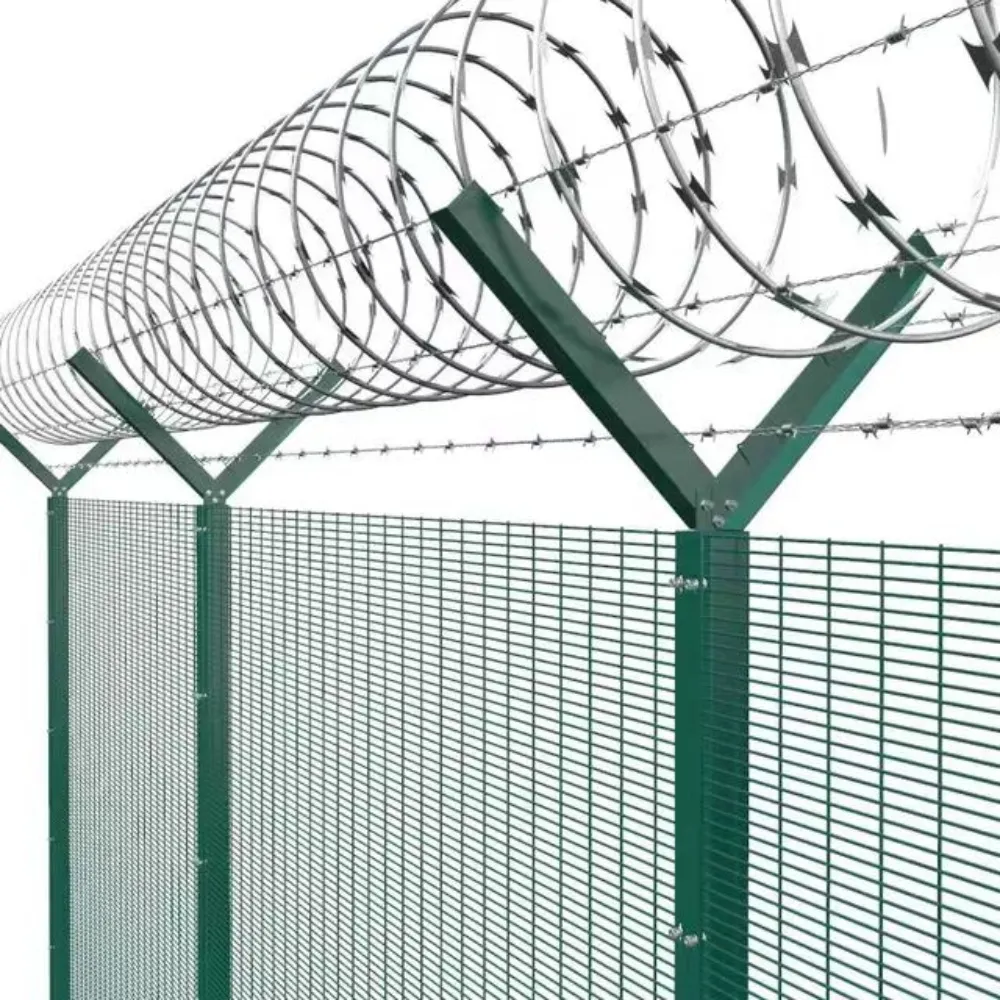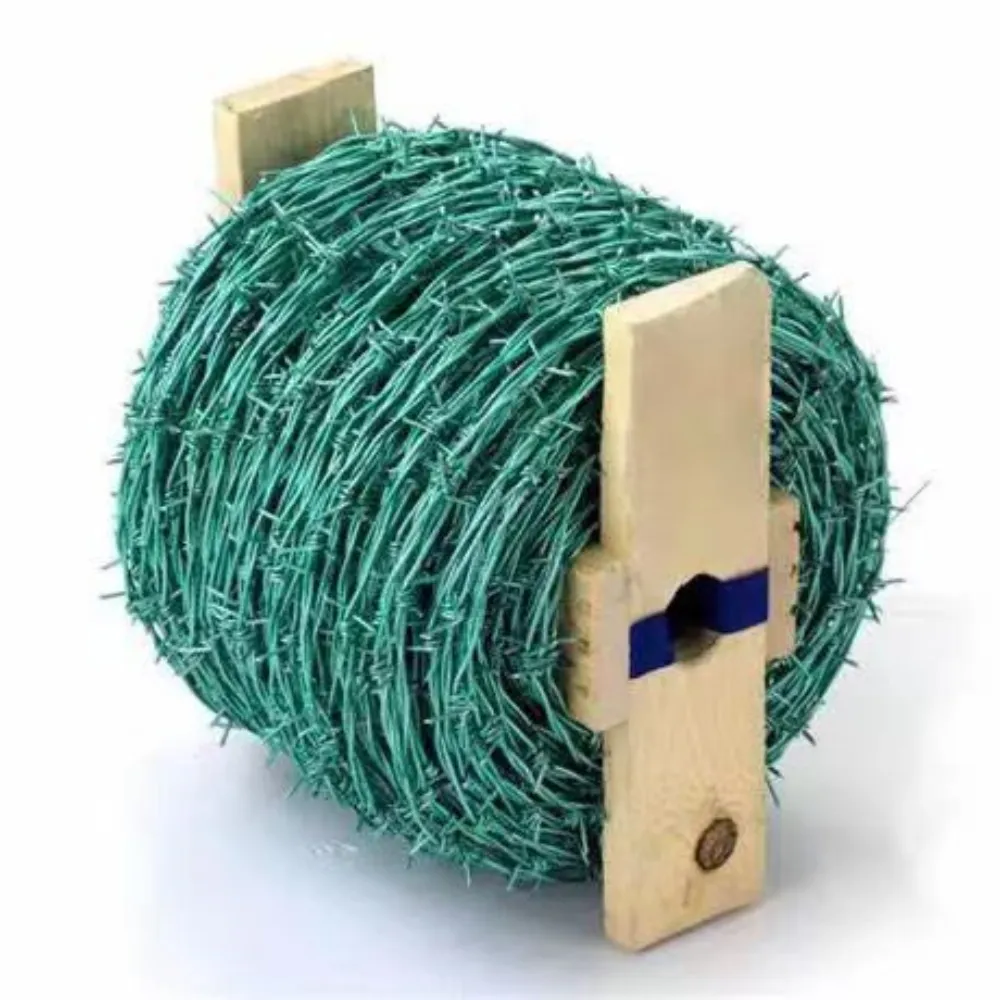Barbed Wire Fence: Costs, Types, and Industrial Applications
Barbed wire fences are widely used in agriculture, industrial facilities, and security applications due to their effectiveness, durability, and cost-efficiency. They serve as a deterrent for both humans and animals, making them ideal for protecting property, livestock, and critical infrastructure. This article explores the cost of barbed wire fences, the differences between barbed wire and barbless wire, the benefits of high-tensile barbed wire, and the industrial applications of these fences.

Barbed Wire Fence Cost
The cost of a barbed wire fence can vary significantly depending on factors such as materials, installation method, fence length, and location. Generally, barbed wire fencing is considered one of the most cost-effective fencing options, especially for large-scale applications like farms or industrial sites.
Average Cost Breakdown:
Material Costs:
- Standard barbed wire: $0.05 to $0.15 per foot of wire.
- High-tensile barbed wire: $0.10 to $0.20 per foot due to its enhanced strength and durability.
- Posts: $2 to $5 each for wooden posts, $5 to $15 for steel posts, spaced about 10-12 feet apart.
- Fencing tools and accessories: Tensioners, staples, and wire ties add additional costs of $0.05 to $0.15 per foot.
Installation Costs:
- DIY installation: $0.10 to $0.25 per foot, depending on labor and the complexity of the terrain.
- Professional installation: $0.50 to $3.00 per foot, depending on the company, location, and fence height.
Total Fence Cost:
- Agricultural/barrier fencing: $1.50 to $4.00 per foot installed, depending on materials and labor.
- High-security fencing: Higher security barbed wire fences with additional features such as electrification or concertina wire can range from $5.00 to $10.00 per foot installed.
Barbless Fence Wire: An Alternative to Barbed Wire
Barbless fence wire is similar to barbed wire but lacks the sharp barbs. It is commonly used in applications where animal safety is a concern or where a physical boundary is required without causing injury.
Advantages of Barbless Wire:
- Animal-Friendly: Barbless wire is less likely to harm livestock, horses, or wildlife, making it ideal for farms or areas near natural habitats.
- Durable and Strong: Like barbed wire, barbless wire is often made from high-tensile steel, providing strong, long-lasting fencing.
- Cost: Barbless wire is generally less expensive than barbed wire due to the simpler manufacturing process, ranging from $0.03 to $0.10 per foot.
Best Uses:
- Livestock Fencing: When the safety of animals is a priority, barbless wire offers a safer alternative to traditional barbed wire.
- Property Boundaries: Barbless wire can be used to define property lines or as a deterrent without causing injury to animals or humans.

High-Tensile Barbed Wire: Benefits and Applications
High-tensile barbed wire is a premium-grade fencing material designed for extra strength and durability. It is made from high-tensile steel, which provides greater resistance to stretching and breaking compared to standard barbed wire.
Key Benefits:
Durability:
- High-tensile barbed wire can withstand harsh environmental conditions such as extreme weather, corrosion, and animal impact, making it ideal for long-term installations.
Lower Maintenance:
- Due to its strength and flexibility, high-tensile barbed wire requires less frequent repair or replacement compared to standard wire, reducing overall maintenance costs.
Versatility:
- It can be installed with fewer posts than standard barbed wire, providing greater flexibility and cost savings in large installations.
Security:
- High-tensile barbed wire is frequently used in industrial and high-security environments due to its strength and resistance to cutting or breaching attempts.
Applications:
- Agricultural Fencing: Ideal for keeping livestock contained while preventing predators from entering.
- Security Fencing: Used in high-security installations such as military facilities, correctional facilities, and industrial plants to prevent unauthorized access.
- Perimeter Protection: Often used around large industrial sites or critical infrastructure to provide a strong physical barrier.
Barbed Wire Fence Company: Professional Installation and Services
Hiring a professional barbed wire fence company can ensure that your fence is installed correctly, safely, and efficiently. Professional fence companies offer a range of services, from selecting the right materials to completing the installation and providing maintenance or repairs.
Services Offered by Barbed Wire Fence Companies:
Consultation and Design:
- Professional fencing companies can assess your property and recommend the best fencing options based on your security needs, environmental conditions, and budget.
Material Sourcing:
- They source high-quality materials, such as galvanized steel or high-tensile wire, ensuring durability and resistance to corrosion.
Installation:
- Skilled technicians handle the installation process, ensuring that the fence is securely installed with proper tensioning, spacing, and alignment.
Customization:
- Custom fencing solutions, such as electrified or concertina barbed wire, can be installed for enhanced security needs.
Maintenance and Repair:
- Regular maintenance, including tension adjustments and rust prevention, is essential to prolong the life of a barbed wire fence. Professional companies also offer repair services for damaged sections.

Industrial Applications of Barbed Wire Fences
Barbed wire fencing is widely used across various industries to provide security, containment, and boundary protection. Its versatility makes it suitable for different types of industrial applications.
1. Industrial and Construction Sites:
- Barbed wire fences are installed around construction sites or industrial facilities to prevent unauthorized access, secure equipment, and reduce theft or vandalism.
2. Agricultural Industry:
- Farmers and ranchers use barbed wire fencing to contain livestock such as cattle and protect crops from animal intrusions. Its durability and cost-efficiency make it ideal for large-scale agricultural operations.
3. Military and Government Installations:
- High-tensile barbed wire and razor wire are frequently used around military bases, government facilities, and border checkpoints for perimeter security and to prevent unauthorized entry.
4. Prisons and Correctional Facilities:
- Barbed wire fencing, often combined with electrified fencing, is used in correctional facilities to prevent escape attempts and enhance security.
5. Critical Infrastructure:
- Power plants, water treatment facilities, and oil refineries often use barbed wire fencing to protect against trespassing, sabotage, and potential terrorist threats.

Barbed wire fences provide cost-effective and reliable protection for a wide range of applications, from agricultural settings to high-security industrial facilities. The choice between standard barbed wire, barbless wire, and high-tensile barbed wire depends on the specific needs of your property or industry. Professional barbed wire fence companies can offer tailored solutions, ensuring that your fencing system is installed correctly and maintained for long-term performance.
Contact us today for more information on barbed wire fencing solutions, pricing, and professional installation services!
-
Weather Resistance of Woven Wire and Chicken Wire Fencing MaterialsNyheterJun.05,2025
-
Umbrella Nails Innovations in Roofing Fasteners for Wind ResistanceNyheterJun.05,2025
-
Modern Barbed Wire Fence Designs for Perimeter ProtectionNyheterJun.05,2025
-
How Iron Nail Wire Enhances Nail Strength and Installation EfficiencyNyheterJun.05,2025
-
High-Security Razor Fence Solutions for Perimeter ProtectionNyheterJun.05,2025
-
Durable Wire Netting Fence Solutions for Animal EnclosuresNyheterJun.05,2025




